Tags: Pluto
Pluto TV to Celebrate 10-Year Streaming Anniversary by Campaigning to Make Pluto a Planet Again
Pluto’s Almost Twin Dwarf Planet Eris Behaves Less Like Solid Rocky World, More Like Soft Cheese
Pluto's Surprising Secret Ice Volcano Could Be Larger than Yellowstone, NASA Reveals
Pluto's Bizarre, Heart-Shaped Crater Could Be Powerful Cryovolcano [Study]
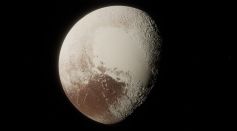
When Did Pluto Stop Being a Planet? Why Was It Reclassified and Demoted?

NASA's Reimagined New Horizons Mission Will Now Explore the Sun's Influence at the Solar System's Edge
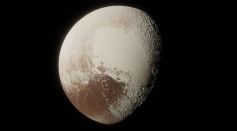
Why Do Some People Believe Pluto Should Be a Planet? Planetary Experts Argue Against the 2006 Controversial Ruling

NASA Shares Photo of Rainbow-Colored Psychedelic Pluto [See Image]
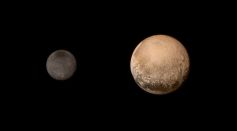
Pluto I's Red Polar Cap Explained: Reddish Material on the Natural Satellite Due to Dynamic Methane Atmosphere

What Is Causing Pluto's Unstable Orbit? Researchers Finally Crack the Code

Pluto May Host Life After Giant Ice Volcanoes in Dwarf Planet Erupts

Where Is Planet Nine? Astronomers Baffled Over Mystery Planet's Location After Scanning 87% of Sky

Should NASA Go Back to Pluto? Here’s What We Need To Know About the Persephone Mission Concept

Mysterious New Trans-Neptunian Object Could Help Search for Planet Nine, Astronomers Say
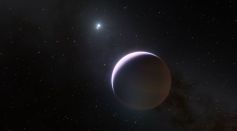
Planet Search Is Not Easy! Astronomers Tell Us How They Discovered Almost 5,000 New Exoplanets

Discovery of Dwarf Planet Eris 17 Years Ago Reignites Debate On Reinstating Pluto In the Solar System
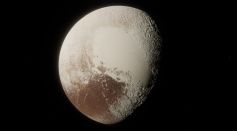
Scientists Still Consider Pluto A Planet, Identify 150 Planets In The Solar System
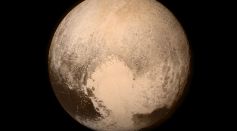
Pluto Demotion to Dwarf Planet Rooted in Folklore? Scientists Want to Reinstate It, Make Moons As New Planet
Pluto Transformation: Scientists Discover That The Atmosphere In The Dwarf Planet Is Disappearing
'The Man Who Killed Pluto:' Mike Brown Believes New Planet More Worthy Than Former Ninth Planet
Most Popular

Starlink Satellite Explodes in Orbit; SpaceX Confirms It'll Re-Enter Earth

What Causes Monsoons? How Seasonal Winds Shifts and Climate Patterns Drive Rainfall

Will Earth's Magnetic Poles Flip Next? Magnetic Pole Reversal Explained Through Cutting‑Edge Magnetosphere Science

How Lightning Science Reveals Why Charged Storms Are Rising with Global Warming Effects





